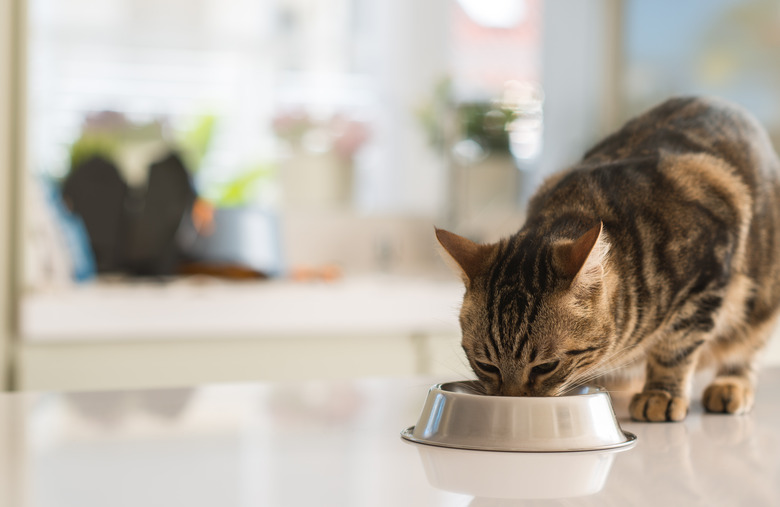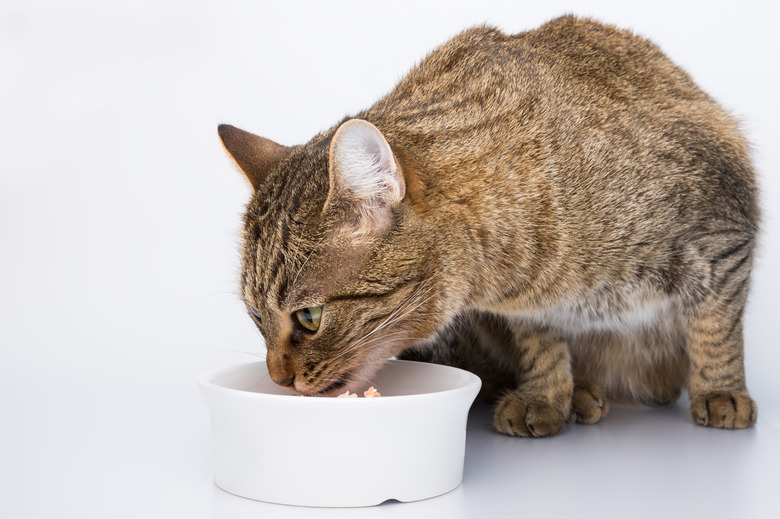Are Cats Omnivores Or Carnivores?
There's a long-standing joke about cats always chasing mice. Just think of the cartoon featuring Tom, a cat, and Jerry, a mouse. In the cartoons, Tom just chases Jerry, and doesn't actually capture him. In real life, cats do catch mice all the time, and they even eat them sometimes!
Why is there not a similar joke about cats trying to catch, say, a swishy sprig of asparagus or a green bean? Is it because cats don't eat vegetables? And what's in that can or bag of cat food, anyway?
Carnivores vs. omnivores
Carnivores vs. omnivores
Calling an animal a "carnivore" means that they eat only meat. The "carni" part of the name references an old Latin word for meat. An animal that is an "omnivore" on the other hand, eats both plants and animals, because the "omni" part of the word means "all." An animal that eats only plants is called an "herbivore."
Cats are carnivores
Cats are carnivores
Cats are carnivores. Cats are often called "obligate carnivores." This is because cats must meet their nutritional needs by consuming other animals. They also have a higher protein requirement than many other mammals. Meat provides cats with essential nutrients such as taurine, arachidonic acid, vitamin A, and vitamin B12 that their bodies require and which they can't get enough of from plants only. Their liver metabolism pathways are different and specific to cats, making them much more efficient at processing protein and using it for energy. These same metabolic pathways make cats less efficient at processing carbohydrates compared to other omnivores such as people or dogs.
If cats don't get enough of these nutrients, cats can suffer from liver and heart problems, skin irritation, and hearing loss. Biologically, cats are natural hunters. In the wild, they supply their nutritional needs mainly through the protein and fats they get from catching small prey such as rodents, birds, small reptiles, and amphibians such as lizards.
What else do cats eat?
What else do cats eat?
Cats do like to nibble on a variety of foods. Cats also will eat grass if they have a chance to go outside, or they will eat houseplants if they don't have access to other fresh plants. Be careful though, because some houseplants can be toxic to cats.
Eating houseplants or grass give them roughage or fiber that can help their digestion. They say that if your cat enjoys eating grass, bring in a handful of it to your indoor cats once in a while. This can also help them purge something like a hairball because it can make them want to throw up.
If your cat seems to like green grass, try adding small portions of vegetables to their food, such as baked carrots, steamed asparagus or broccoli, green beans, winter squash, or chopped greens. Uncooked carrot are not digestible.
What's in cat food?
What's in cat food?
Most people wouldn't consider letting their beloved house cats feed themselves through hunting in the wild for all of their food. Not only is this dangerous in an urban setting, but it can wreak havoc on the population of things like birds and other small animals which are necessary for an intact ecosystem. Therefore, cat food has been commercially prepared to contain the nutrients that a cat needs.
The commercially available dry cat food, or "kibble," combines animal products with vegetable-based starches. The starches are mainly to hold the food together in its "nugget" shape. Wet, canned cat food does contain animal parts, but it's primarily things like chicken and poultry. These are animals that a cat would not be likely to catch and kill in a natural, hunting-in-the-wild situation.
Because we love our indoor cats, humans have adapted their diets to provide them the animal products they need, but often in a different dorm than what they would encounter in the wild. As long as your pet seems to enjoy her food, chances are she doesn't know the difference.
In summary
In summary
Cats are obligate carnivores, meaning they need to eat meat to survive. Dry or wet cat food will provide cats will all the nutrients they need, you do not need to supplement their diets with "people" food.


